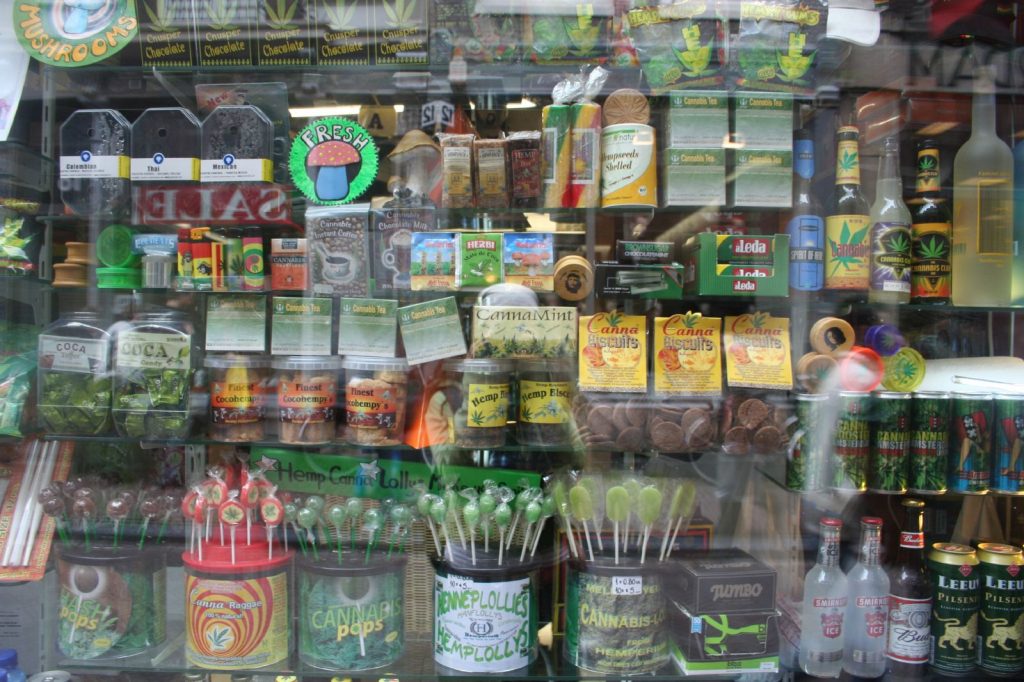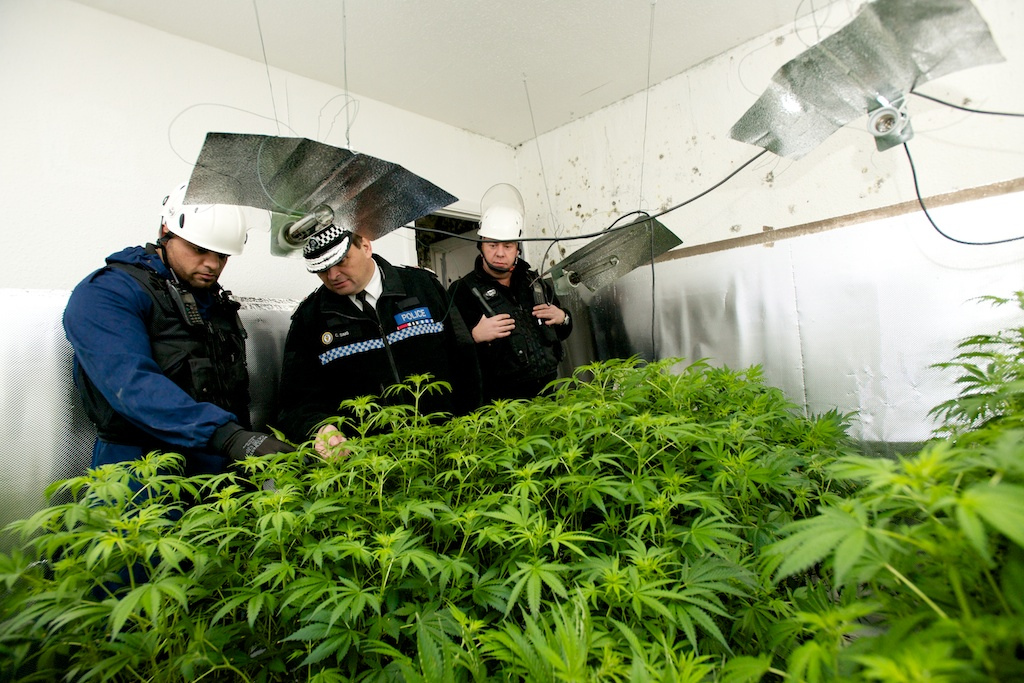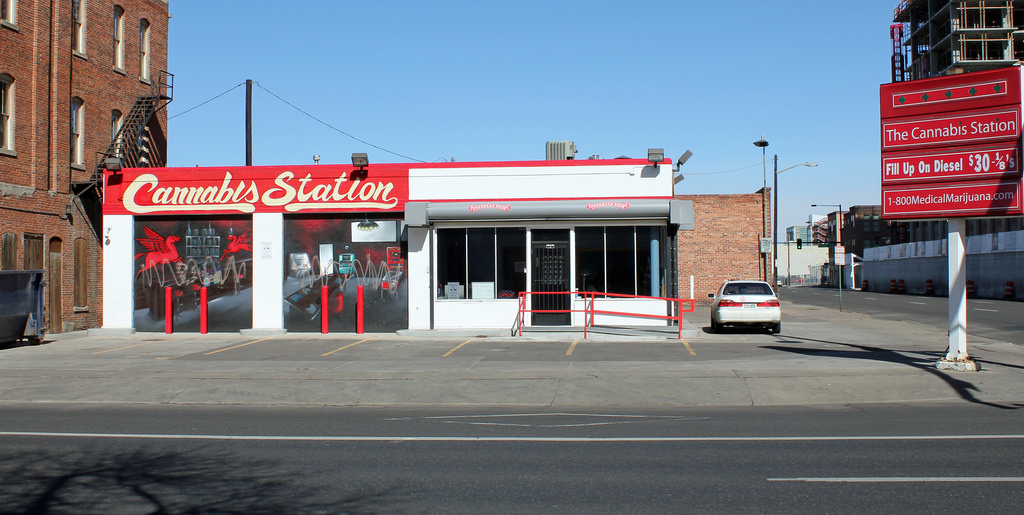
We spoke to someone who studies drugs for a living about why legalizing weed is a good idea
Today is 4/20 – the day when stoners get together in peaceful (like, really peaceful – they're all stoned) – rallies to celebrate cannabis, and call for it to be legalized.
We thought we'd speak to someone who wasn't stoned and knew quite a lot about the subject about the economics around the subject – why so many people think it should be legal, how it would work, and whether we'd start seeing cannabis bakeries pop up on every street corner.
So we gave Henry Fisher a call, who works at an organization that's trying to broaden the conversation around drugs from the perspectives of science, health, lifestyle, culture, business and (woop!) economics.
Here's our interview:
So – why legalize weed?
There are lots of reasons to cannabis. The biggest for me is that it’s a huge, huge industry in the UK alone, in excess of 6 billion pounds. Currently, all that money goes untaxed and into the hands of organized crime, mainly, which then funds other related crimes, human trafficking in particular, which is a huge issue on cannabis farms.
Young people can also access cannabis much more easily if it’s unregulated, and it’s been shown to be more harmful for developing minds - regulating it would let us put an age limit on the product, like alcohol, or tobacco.
You’ll also have more control over what types of cannabis get sold. In an illegal market, the strongest and most harmful forms are the ones that get sold - that’s what we’re seeing now.
It seems like people who are generally more ‘left wing’ – tend to be the ones supporting legalisation, but there’s a ‘right-wing’ case for it too, right?
So there’s one very fundamental argument that says it’s your right to put whatever you want in your body and do what you want with your mind if you’re not hurting anyone else. But then there’s obviously also a very pro-business argument, because there’s a lot of money to be made in a legal market, and it’s a very effective way of reducing crime.
Then there’s the public health argument - when it’s illegal, people are less likely to seek out help with their cannabis use. If you decriminalize, legalize, regulate, people would be far more willing and able to seek out treatment.
It’s also a question of human rights - the human trafficking that goes on, and the fact that it’s disproportionately poor people being arrested and ending up with criminal records, which increases inequality.
So to go into a bit more detail on how the ‘black market’ works: where is weed produced at the moment?
One of the big stories in the UK is cannabis farms. They tend to be operated by organized crimes on various levels. There’s a lot of enforced slavery that goes on in these farms, with people who’ve been transported from other parts of the world like Vietnam being locked in houses or bunkers in poor conditions with no contact to the outside world.
Because it’s illegal, the farms are inside, so they use a lot of lighting, water, and air conditioning - using huge amounts of electricity. So electricity theft is actually a major issue that goes alongside cannabis growing.

Who’s running the industry?
Lots of different people act in the illegal market, from people who grow their own at home because they use it for medical use, through to international criminal gangs. It’s the most lucrative drug of any illegal drug in the UK by a long shot, so there’s huge amounts of money to be made from it.
It’s also very useful for criminal gangs because it’s a good first point into getting people involved in the illegal market, in crime. You can give a teenager an ounce of weed and tell them to sell it, and you can basically do that for free, and that sucks them in, and then you can say, “Well, you owe me now,” That’s easier to do with cannabis than with pills and cocaine, so teens are less likely to go near them.
And if it was legal, would it just become totally commercial, like any other product – with lots of different brands emerging, and ads on TV?
We’re already starting to see different models come out in different parts in the world.
Uruguay has gone for state control, no adverts. The US has gone the other way, with adverts and lots of brands. Canada is somewhere in the middle - they’ve not got advertising, but there is a free market there, but it’s much more tightly regulated, a lot like tobacco.
Some of the things that would come from a free market could be very helpful. I think what you’d really have to be careful with, and have strict regulations for, is the advertising and branding, because there’s a lot that can be done to entice young people into using it more, which wouldn’t necessarily be a good thing.
What would happen to the price?
It would inevitably come down. If you brought in legal cannabis that was more expensive than illegal cannabis it would definitely be unpopular!
What other kind of products could you imagine popping up alongside the weed industry? Cannabis bakeries…
In the US already, you’ve seen loads of different things.
One of the interesting areas has been the tech area - lots of apps have sprung up, with ideas like a delivery service - a Deliveroo for weed - are being bounced around, but also review sites and stuff. It can be quite a geeky thing - people talking about different types of weed can be almost like people talking about wine tasting.
There’d be a huge legal industry also in producing different forms of cannabis - processing it into other forms, food, and so on - so there’s lots of other industries that can come off it. And a huge amount of money that would go from the illegal argument to the legal market - financial services, legal services that would need to cope with this whole new industry.

How would taxing weed work? Would it be really high, like on alcohol or cigarettes?
There’s two main options. Either you tax highly, to disincentivize people from using a product, or you tax very low, so you undercut the illegal market, and reduce crime.
I think it’d be best to tax relatively low, and reduce the involvement of the criminal market, at least at first, and then look at increasing taxes. The way we tax alcohol based on alcohol content, we could tax weed on THC content - or we could tax it lower if it’s got more CBD, to incentivize people to buy the one that would protect their mental health.
Policing drugs is obviously really expensive for governments – but if weed became legal, and abuse was treated as a health problem, not a crime, wouldn’t that move costs over to the health system?
I don’t think so, partly because you can control the market so that you make the product less problematic. Right now you have no way of delivering intelligent public health campaigns. All we can do is tell people “Don’t take drugs.” If it was legal, we could say “Don’t smoke weed with tobacco, it’s bad for you.” So that’d be better for public health and awareness. Any extra costs would definitely be offset by the huge savings to the criminal justice system.
What’s public opinion in the UK on the issue like at the moment? do you think some people still oppose it?
Different polls say different things, but support for regulation is around 50 percent.
The main thing is, most people have what they consider most important things to worry about. They’re thinking about Brexit, or taxes, or the housing market - so even for political parties, it’s not a big policy issue, because it’s not seen as an important issue. So part of the challenge is making people more aware of the impact that it has.
Obviously there’ll always be some who just think it’s not a good idea - especially people who see the worst effects of what cannabis has done to certain people, addiction, or dependence. And there’s those who think it’s morally wrong to consume substances that change your mental state - which is hard to argue with. But on balance all the benefits you would get I think are far more important.
Henry Fisher is Policy Director at Volteface. He tweets at @_hydrofluoric



